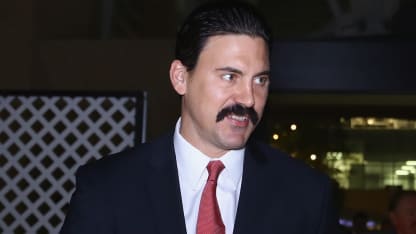Things have changed.
The NHL Department of Player Safety has issued two suspensions for illegal checks to the head this season. When NHL senior vice president of player safety George Parros reported to the GMs on Tuesday, he focused on boarding and interference. The department has issued six suspensions for boarding -- one in the preseason, five in the regular season -- and five for interference.
RELATED: [GMs want goaltender interference to be decided by Situation Room]
"It's really a good thing," Parros said after leading a discussion focused on player safety in one of the breakout sessions during Day Two of the meetings. "If you think about it, where the department's come, from its very inception, [hits to the head were] the big concern. And we'd see a lot of guys head hunting and the rest of it. And now we keep shifting the microscope to different aspects of the game and really smaller and less [intentional] aspects of the game.
"Head contact certainly has not gone away, but it's perhaps in a different form now. But yeah, the straight [hits to the head], [we] really haven't seen too much this year."
Parros said that when it comes to boarding, the department sees younger players turning their backs to the play at the last second, perhaps because they've grown up not expecting to be hit.
"Those are the tough ones to determine where the fault lies," Parros said. "If a player can actually get out of the way before making contact when he does see the numbers, we take that into consideration. But we do see a lot of the younger players these days putting themselves in tough situations at the last second."

